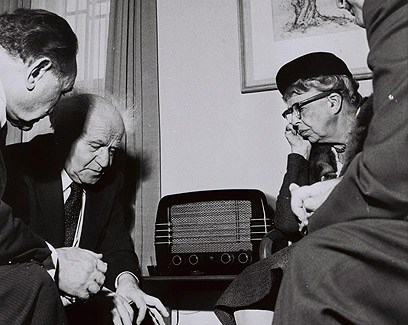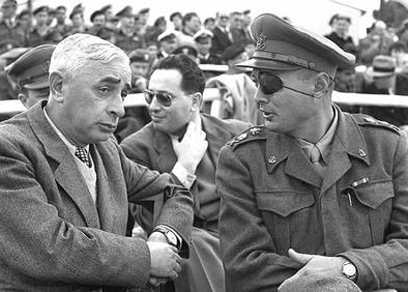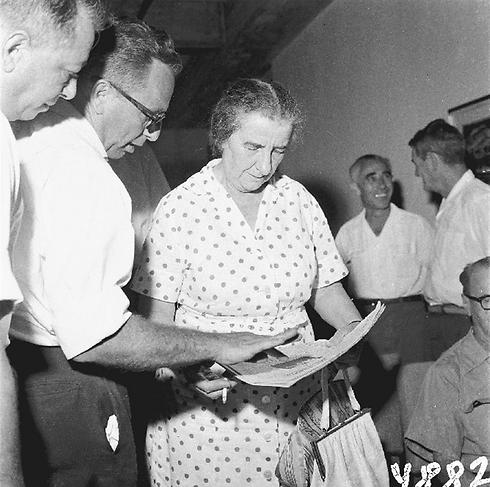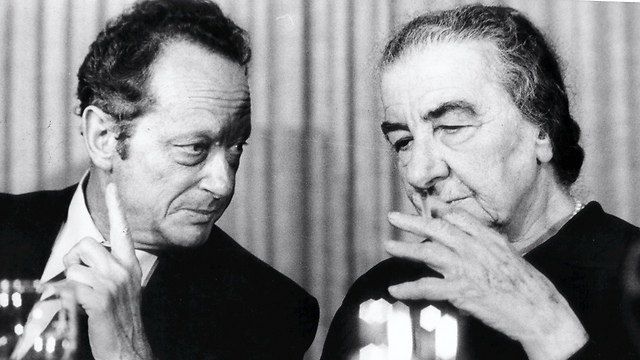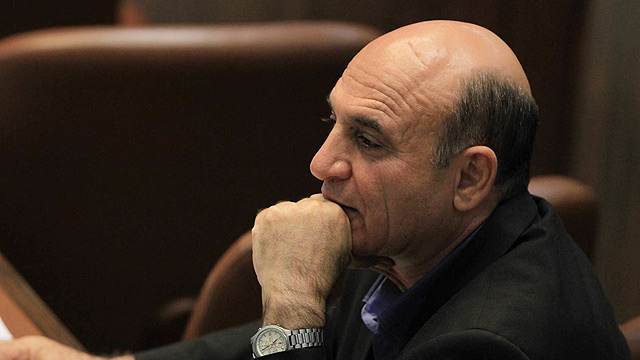
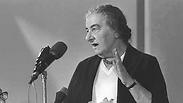
The 19th Knesset, however, would not set the record for shortest Knesset in Israeli history even if it disbanded tomorrow; that honor goes to the 4th Knesset, led by one of Israel's founding fathers, David Ben-Gurion.
The current Knesset, when it expires in the coming days, will have survived less than two years. However, the not-so-distant history teaches the wise not to rule out the option that a new government will rise with a different formation, preventing early elections from taking place.
The shortest Knesset term
The elections for the 4th Knesset, the shortest Knesset in Israel's history, were held in November of 1959 with Mapai, headed by David Ben-Gurion, receiving 47 seats.Ben Gurion faced the challenge of formulating a government but uniting Mapai, Religious Torah Front, the Progressive Party, Ahdut HaAvoda, and the National Religious Party.
Ben-Gurion's insistence on getting rid of former defense minister Pinhas Lavon from his position as secretary-general of the Histadrut and the sharp criticism he received from within his coalition ultimately led him to quit the position.
Ben-Gurion's attempts to build a new government failed. Mapai did not present any candidates for the position of prime minister and on March 13, 1961 the Knesset decided to dissolve the government and head to the polls on August 15.
Mapai won 42 seats, and Ben-Gurion put together a government a similar formation of political parties to his previous coalition. He served for another 20 months before quitting once again for "personal reasons," because he felt that he lost the trust of his friends following the Lavon Affair, a botched operation in Egypt headed by then-defense minister Lavon.
Another two Knessets lasted less than three years: The first Knesset which lasted for two and a half years and the 17th Knesset which lasted for two years and eleven months.
3 month government
In the 66 years of Israel's existence, 33 governments have ruled the nation – three of them headed by Benjamin Netanyahu.
The shortest government term was held during the 16th Knesset and established by Golda Meir after the Yom Kippur War.
Meir's Alignment party achieved significant gains at the end of 1973 with 51 seats, and in March 1974 she presented her government, which included the National Religious Party and Independent Liberals.
However, after the release of the Agranat Commission, a national commission of inquiry that set out to investigate the failings of the IDF prior to the Yom Kippur War when Israel was found unprepared for an attack by Egypt, and a public protest, Meir resigned in June 1974, and Yitzhak Rabin formed a replacement government.
Other governments lasted for less than year in Israel's history, however, most of them were related to the repeated resignations of Ben-Gurion. In most cases, elections were not held at an earlier date.
The shortest term of a prime minister
Since the establishment of the State of Israel, 13 prime ministers have governed the Jewish state, including Yigal Allon, who held the position for less than three weeks after Levi Eshkol resigned.
Two prime ministers have served for less than two years.
Ehud Barak, who was elected in elections held in 1999, lost to Ariel Sharon in 2001 after a year and eight months. The elections marked the first time Israeli citizens went to the polls solely to elect a prime minister and not to Knesset members.
The second prime minister to serve less than two years was Moshe Sharett, who served for a year and ten months between Ben-Gurion's terms as prime minister.
Sharett put together the 5th Knesset in 1954, after Ben-Gurion moved to Sde Boker in southern Israel. During his term, the country was in upheaval following the revelation of the Lavon Affair. Lavon, who was behind the failed military attack, was forced to resign and Ben-Gurion replaced him as defense minister.
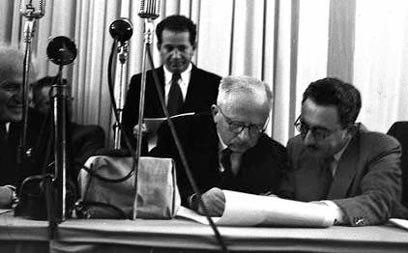
Less than a year and a half later, the government broke down after revelation of the Kastner affair.
Rudolf Kastner was a Jewish Hungarian journalist and lawyer who was known for helping Jews escape Europe during the Holocaust. Kastner was assassinated in 1957, after an Israeli court accused him of having collaborated with Nazis in a case that came be to known as the Kastner affair.
Sharett resigned, however he compiled an interim government until the elections for the third Knesset took place in November 1955, resulting in the return of Ben-Gurion as prime minister.
Early Elections
In May 2012, the political system was also in turmoil over the threat of early elections. A unity government was formed between the Likud, headed by Netanyahu, and Kadima, headed by Shaul Mofaz. The two leaders shocked the political system when they announced a deal hours after the bill to dissolve the 18th Knesset was passed and elections were set for September 4 of that year.
Mofaz, who had previously called Netanyahu a "liar" and swore he would never sit in a Netanyahu government, said "we put it in the past." The two leaders conducted a press conference in the late hours of the night, telling the public there was a need for unity and government stability. The deal ultimately fell apart.
In October of the same year, it was decided that the elections for the 19th Knesset would be held on January 22nd, 2013, with Netanyahu stressing the budget issue and the impending Iran nuclear crisis.
"Short elections would be better for Israel," he emphasized, "after four years we will head towards elections."














